Vaping Laws in Spain
The Regulations on Vaping in Spain
In recent years, the act of vaping has experienced an unprecedented surge in popularity worldwide, including in Spain. However, this newfound prevalence of vaping has resulted in a mounting apprehension regarding its potential consequences for health and safety. Consequently, governments around the globe, Spain included, have implemented regulatory measures to oversee the consumption and distribution of vaping products.
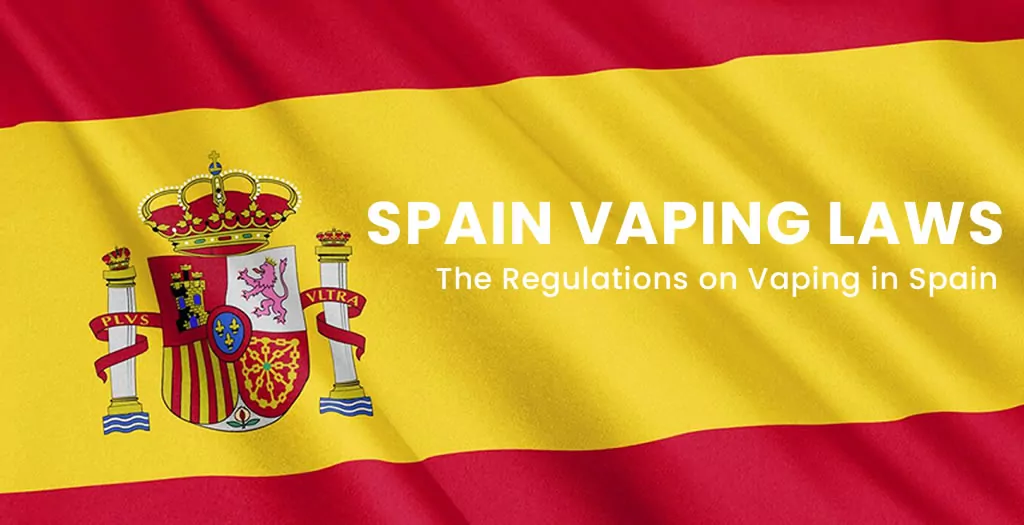
If you’re one of the many folks who’ve switched from cigarettes to vaping, you’re not alone. In fact, the vaping trend has taken over the world by storm, and Spain is right in the thick of it. But before you start puffing away on your e-cig, it’s important to remember that there are some strict rules and regulations surrounding vaping in Spain. If you’re not careful, you could end up in a bit of legal hot water.
But fear not, because we’re here to give you the lowdown on all the vaping laws in Spain. We’ll break it down for you, so you know exactly what’s allowed and what’s not. Plus, we’ll even clear up some common misconceptions that might be confusing you. So sit back, relax, and let’s get started on this vaping journey together!
Is Vaping Legal in Spain?
If you’re heading to Spain and planning on puffing on your e-cig, here’s what you need to know: vaping is totally legal in Spain, but there are some rules you need to follow.
The regulation of vaping products in Spain began in 2014 with the passage of Law 28/2005 on Health Measures against Smoking and the Regulation of the Sale, Supply, Consumption and Advertising of Tobacco Products. This law established age restrictions and other regulations for tobacco products, including cigarettes and other tobacco products, and extended these regulations to cover vaping products.
In 2018, Spain updated its regulations on vaping with Royal Decree 506/2018, which established specific regulations for the sale and use of vaping products. These regulations include requirements for product labeling, advertising restrictions, and safety and quality standards for vaping products.
The Tobacco Product Act 2010 is the law that governs vaping devices and liquids in Spain. While vaping is allowed, the act has some strict regulations that you need to be aware of. Basically, you can’t just vape anywhere and everywhere like a madman. You need to stick to the rules, or you might find yourself in some trouble with the law.
We must highlight that the legislation that regulates electronic cigarettes is more flexible than that of tobacco, and all of this is recorded in the BOE, the official journal of the government of Spain.
What is the Minimum Age to Vape in Spain?
In Spain, the minimum age to purchase vaping products is 18 years old, the same as the minimum age for purchasing tobacco products. Additionally, advertising and promotion of vaping products is heavily regulated in Spain. All advertising and promotion of vaping products must be done in compliance with the regulations set forth in Royal Decree 506/2018.
Vaping Product Standards and Labeling Requirements
To ensure the safety and quality of vaping products sold in Spain, the government has established specific standards for these products. For example, vaping liquids must be manufactured in compliance with the European Pharmacopoeia, and must be labeled with a list of ingredients, nicotine content, and any potential health risks associated with the product.
Additionally, vaping products must include warnings on their packaging and advertising materials about the health risks associated with using these products, including the potential for addiction and adverse health effects.
The legislation in question takes into consideration the vaping-friendly liquids available, which can either contain nicotine or not. It dictates that:
-
- Nicotine-containing eliquids must be distributed in refillable containers, with a maximum capacity of 10ml.
- The permissible amount of nicotine in these containers is limited to a maximum of 20 milligrams per milliliter.
- It is strictly prohibited for these eliquids to include additives or extra vitamins due to their harmful effects, similar to stimulants.
- Nicotine-containing containers must be completely safe and untamperable by minors.
Public Use and Indoor Vaping Regulations
In Spain, the use of vaping products is prohibited in most public places, including schools, hospitals, and public transportation. Additionally, many regions in Spain have established indoor vaping bans, prohibiting the use of vaping products in enclosed public spaces.
Where you can’t vape?
In Spain, restrictions on vaping are related to e-liquids that contain any amount of nicotine. If the electronic cigarette has nicotine in its essence, then its use is entirely prohibited in certain public and private areas. The following places have strict regulations on vaping with nicotine, and violating these regulations may result in a fine of €100 or more depending on the Autonomous Community:
-
- Schools / Training centresthat cater to underage students. However, vaping is allowed outdoors in college or adult education facilities, as long as they are not on the sidewalks surrounding the education area and the immediate accesses.
- Public administration offices. Vaping is prohibited in law enforcement offices.
- Public law entities. Like administrative offices, vaping is not allowed within centers dedicated to public law.
- Health centers, establishments, and services.
- Public transportation on urban and interurban routes. Smoking or vaping is completely banned within public transport to respect the freedom of other people present.
- Rail transport. The same rules apply to vaping as to smoking in buses and the subway. However, some companies allow vaping on public terraces.
- Maritime and air transport. The laws on vaping in these modes of transportation vary, so it is necessary to review the regulations stipulated by Spanish and foreign travel companies.
- Children’s playgrounds or play areas such as parks, which are exclusively for children’s entertainment. Vaping is prohibited in all communities in this type of children’s areas.
Where you can vape?
After taking into consideration the designated areas that have been strictly prohibited by the governing body, we can engage in vaping activities in other locations, regardless of whether the e-liquid contains nicotine or not. Nevertheless, some exceptions exist:
-
- Enclosed or private facilities are required to disclose whether or not vaping is prohibited on their premises. If there are no visible signs regarding the prohibition of vaping, then you can vape freely without anyone demanding you to discontinue your use of your vaping device.
- Recreational venues such as bars, clubs, or restaurants that offer separate areas for smokers and non-smokers will consider those who use vape devices as smokers.
- Restaurants allow vaping on their terraces, as no specific legal provisions restrict it.
- Beaches have no such restrictions on vaping.
You are now aware of the distinct places where you can vape and the places where it is not allowed, allowing you to avoid any penalties enforced by regulations due to non-compliance with the laws concerning this practice.
Penalties for Violating Vaping Laws
Penalties for violating vaping laws in Spain can include fines and other penalties. For example, individuals who sell vaping products to minors can be fined up to 300,000 euros, and individuals who violate advertising regulations can be fined up to 100,000 euros.
Additionally, businesses that violate vaping regulations can face fines of up to 1,000,000 euros, as well as other penalties such as the suspension or revocation of their license to sell vaping products.
Future of Vaping Laws in Spanish
As with any regulatory framework, the vaping laws in Spanish are subject to change over time. Factors that may influence future regulations include new research on the health effects of vaping, changes in public opinion, and technological advancements in the vaping industry.
Some advocates for vaping argue that current regulations in Spain and other countries are too strict, and that vaping products can be an effective tool for smoking cessation. However, others argue that regulations are necessary to protect public health and safety.
Conclusion
In conclusion, vaping laws in Spain are designed to regulate the use and distribution of vaping products in order to protect public health and safety. These laws include restrictions on marketing and advertising, age requirements for purchasing vaping products, safety and quality standards, and restrictions on public use and indoor vaping. As the popularity of vaping continues to grow, it is important to follow these regulations in order to ensure the safety of individuals and the public as a whole.
FAQs
What is the legal age to purchase vaping products in Spain?
The legal age to purchase vaping products in Spain is 18 years old, the same as the minimum age for purchasing tobacco products.
Are there any restrictions on the flavors of vaping products that can be sold in Spain?
There are currently no restrictions on the flavors of vaping products that can be sold in Spain.
Can vaping be done in designated smoking areas in Spain?
No, vaping is not allowed in designated smoking areas in Spain.
What are the penalties for violating vaping laws in Spain?
Penalties for violating vaping laws in Spain can include fines and other penalties, such as the suspension or revocation of a business’s license to sell vaping products.
Are there any upcoming changes to vaping laws in Spain?
It is always possible that vaping laws in Spain may be subject to change in the future, depending on factors such as new research on the health effects of vaping, changes in public opinion, and advancements in the vaping industry.
- Beginner’s Guide: How to Choose & Use Vape Pod Kits - April 16, 2024
- ARC DC16000 Disposable Vape Review: Futuristic Design - April 15, 2024
- Are Vapes Addictive? Exploring The Science Behind Nicotine - April 15, 2024
Related posts:
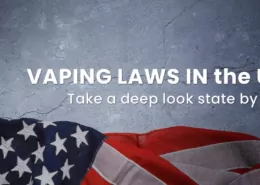 Vaping Laws in the U.S. by State
Vaping Laws in the U.S. by State
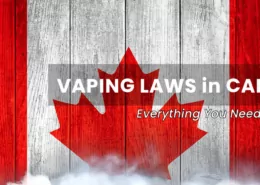 Vaping Laws in Canada – Everything You Need to Know
Vaping Laws in Canada – Everything You Need to Know
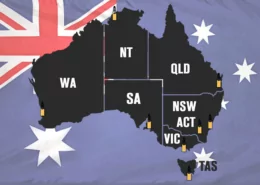 Australia Vaping Laws – Is Vaping Illegal in Australia
Australia Vaping Laws – Is Vaping Illegal in Australia
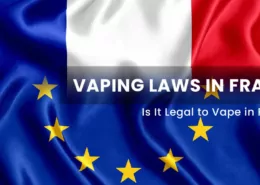 Vaping Laws in France – Is it Legal to Vape in France?
Vaping Laws in France – Is it Legal to Vape in France?
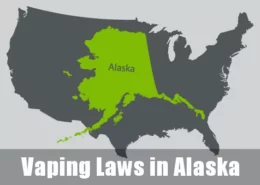 Vaping Laws in Alaska – Is it Legal to Vape in Alaska?
Vaping Laws in Alaska – Is it Legal to Vape in Alaska?
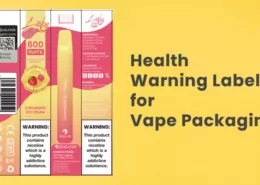 The Health Warning Label for Vape Product Packaging in Different Countries
The Health Warning Label for Vape Product Packaging in Different Countries


